19, October 2020
French Cameroun Crisis: Schools close in the North as Boko Haram steps up attacks 0
Cameroon says it has again closed more than 60 schools on its northern border with Nigeria to protect children and teaching staff from increasing Boko Haram attacks. Many people have fled the region and are now displaced.
The Islamist group has stepped up its use of suicide bombers, even as the country’s military has drastically reduced the jihadists’ firepower.
The central African country has deployed its military to assure the safety of the remaining civilian population in the affected regions.
Ousmanou Garga, Cameroon’s basic education official on the northern border with Nigeria, says recent Boko Haram attacks have made many schools unsafe.
Garga says several dozen schools in Cameroon’s Mayo Sava, Mayo Tsanaga and Logone and Chari administrative units that border Nigeria’s Borno state, the epicenter of Boko Haram’s activities, no longer function.
“Sixty-two schools have been closed. The children have to be either scholarized (educated) in other schools very far from their own villages or to abandon schools. Thirty-four-thousand-and-fifty-four students have been registered as IDPs. We have the students of the host communities; we have even refugee students,” he said.
Garga said teachers in all the affected schools fled with the children they teach.
Cameroon’s military has been reporting at least three Boko Haram attacks every week since January. The military says most of the attackers are suicide bombers, mainly women and children. The military says the terrorist group has torched 13 schools within the past two months, held at least 200 people for ransom and abducted an unknown number of civilians.
Colonel Ndikum Azeh, commander of Cameroonian troops fighting Boko Haram in the Mayo Sava, Mayo Tsanaga and Logone and Chari administrative units, says the military has been deployed to protect civilians in the area. Azeh says some troops have also been deployed to teach displaced students in safer areas less susceptible to Boko Haram attacks.
“Ashigashia (a border town) has for long been a target for Boko Haram assault as early as 2014. The hierarchy (military) thinks that to sustain a good security situation, it is through the youths and the best process is through their education,” Azeh said.
Nongovernmental organizations, rights and humanitarian groups have been calling on Boko Haram to respect the intergovernmental Safe School Declaration. Desire Fouda of the NGO School First says the declaration should be observed to protect students and ensure they are able to receive an education.
“We sensitize different actors in education to respect those guidelines on safe schools declaration so that all the different actors should contribute to help those children to have access to education,” Fouda said.
Boko Haram terrorists have been fighting for 11 years to create an Islamic caliphate in northeast Nigeria. The fighting has spread to Cameroon, Chad, Niger and Benin, with regular killings, abductions and burnings of mosques, churches, markets and schools.
Source: VOA
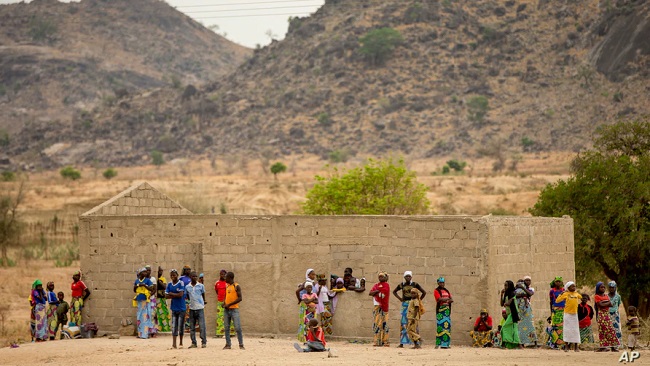

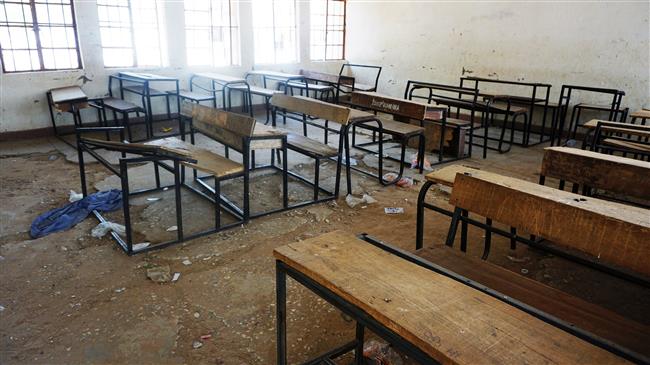

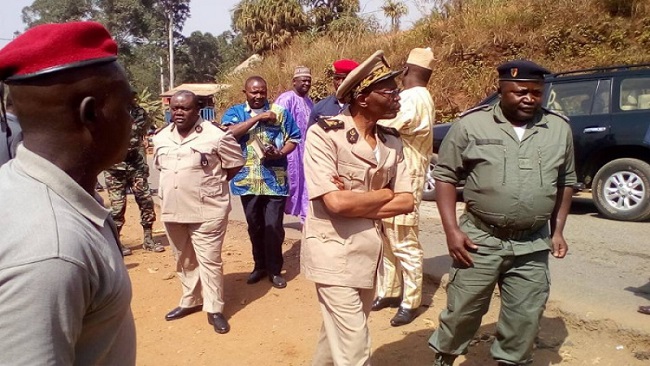
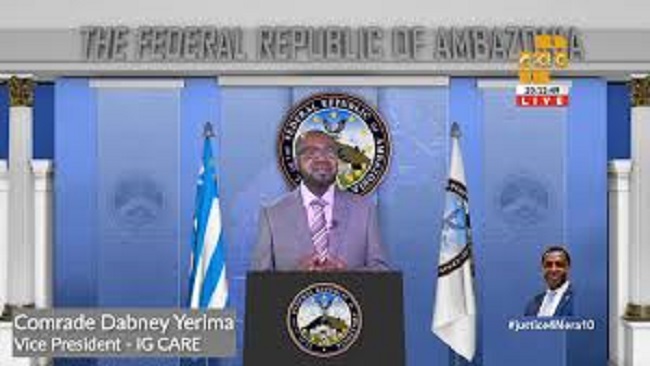

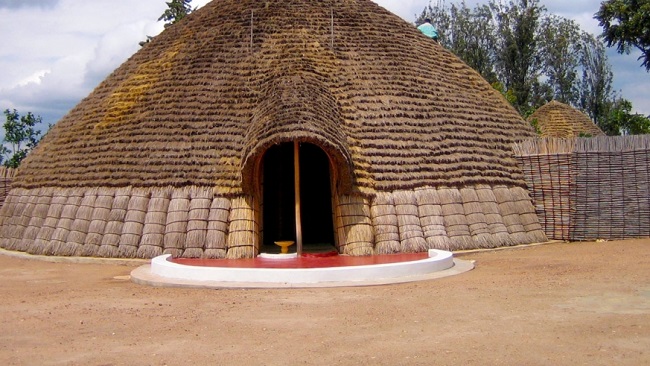
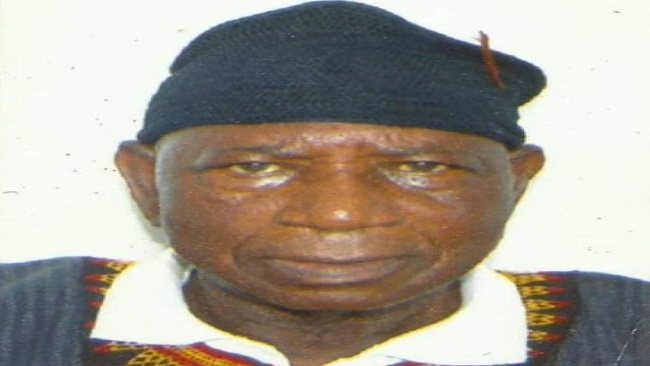


















1, November 2020
Schools at the heart of Cameroon’s separatist conflict 0
Schools are “weapons of war” in a separatist insurgency in Cameroon’s two Anglophone regions, but the massacre of eight young children in class last week brought a new level of horror.
Since violence erupted in 2017, the kidnapping of youngsters, attacks on teachers and the destruction of schools have been frequent in the western part of the mainly French-speaking country.
Secessionist groups kill civilians, while the army is also known for brutal attacks on non-combattants in its drive to crush forces seeking a breakaway state.
On October 24, gunmen on motorbikes rode up to a bilingual school in the town of Kumba and opened fire on girls and boys aged between 12 and 14.
At least eight children perished and about a dozen more were wounded and taken to hospital, according to the UN Office for the Coordination of Humanitarian Affairs.
“The school is used as a weapon of war in this conflict,” Ilaria Allegrozzi, regional Central Africa researcher for Human Rights Watch (HRW), told AFP.
“The separatists don’t want the children to be in the schools, institutions which they equate with central authority,” she said.
“Most of the teachers appointed to the Anglophone regions are Francophone,” Allegrozzi added, in a country where French is used by a majority. The English-speaking regions are a post-colonial heritage.
Syllabuses for history and civic education lessons are seen as biased instruments of government policy by separatists, who have in recent years introduced a strategy of school boycotts.
In November 2019, the UN Children’s Fund (UNICEF) reported that some 855,000 children were not attending school in the Anglophone regions.
About 90 percent of state-run primary schools, totalling more than 4,100 establishments, and 77 percent of the state-run secondary schools were not functioning or completely closed down, UNICEF found.
‘People began to believe again’
The start of the new school year on October 5, 2020, was markedly different.
“The government and Anglophone civil society put a lot of pressure on the separatist groups to let their children go back to school, and schools that had been closed for years began to reopen,” said Arrey Elvis Ntui, the senior researcher in Cameroon for the independent International Crisis Group.
“After three years of almost total school shortages, people began to believe again in the institution, the classrooms were packed,” said Jacques Ebwea, a political analyst based in Buea, the chief town of the Anglophone Southwest region.
“It was a success. Unfortunately, Saturday’s attack will dampen the enthusiasm of many people,” he added.
Blaming separatists for the killings, Communications Minister Rene Emmanuel Sadi declared that “the goal of the secessionists is to break the momentum observed in the resumption of classes for the 2020/2021 school year in the Northwest and Southwest regions, and thereby dissuade parents from sending their children to school.”
On Tuesday morning, false rumours of new attacks spread panic at schools in Limbe and Buea in the Southwest, where frightened pupils tried to flee the premises while their scared parents were rushing to fetch them.
“I don’t know if I’m going to send my child back to school,” said Desire, a resident of Kumba. “If the situation deteriorates any further, I will send him elsewhere, to Douala or Bafoussam.”
Both towns are on Francophone territory and Douala, a big city and port, is the economic capital of the country.
‘Could happen anywhere’
“There is general panic in the area,” said Semma Valentine, a teacher in Bamenda, the capital of the Northwest region. “All parties concerned in the conflict are to blame for this situation.”
“Parents must have the courage to send their children to school, but we also need the government to guarantee the safety of these establishments.”
Stephen Afuh, chairman of the Presbyterian Education Authority Teachers Trade Union (PEATTU), warned that “what happened in Kumba could happen anywhere at any time.”
He remarked on the difference between urban areas and the rural ones where many schools could not reopen.
“To ensure security in schools, the government should call a ceasefire, recognise its mistakes and open a dialogue between all parties to examine the causes of the conflict and to find solutions together,” Afuh said.
Confronted with Saturday’s attack, a “deeply outraged” government chastised the Mother Francisca International Bilingual Academy in Kumba for reopening without authorisation, which meant that it “could not benefit from the same protective measures as other places of learning”.
In Cameroon, nevertheless, it is common practice for schools to open without the required authorisation.
“Keep the schools open, make sure they have the authorisations to function,” Secondary Education Minister Pauline Nalova Lyonga said in English during a visit to the site.
“The school that works will guarantee our joint existence.”
Source: AFP